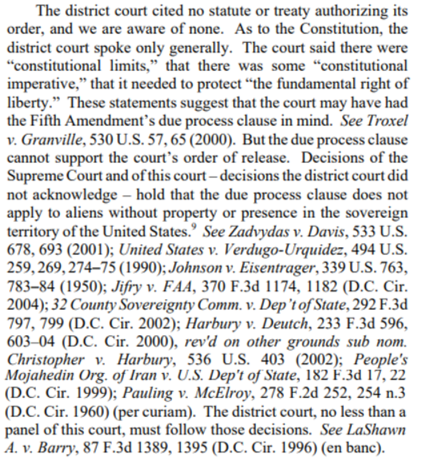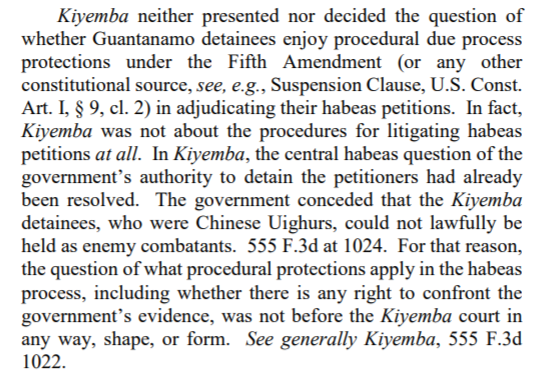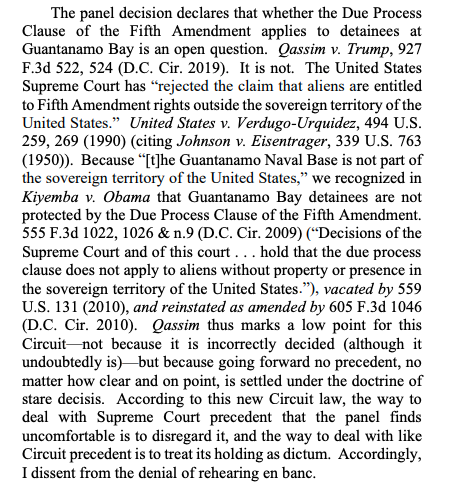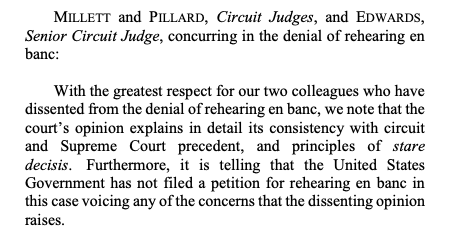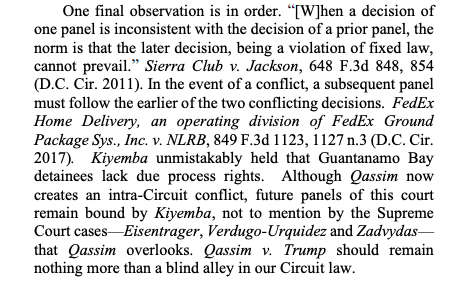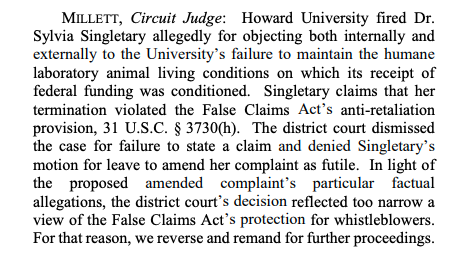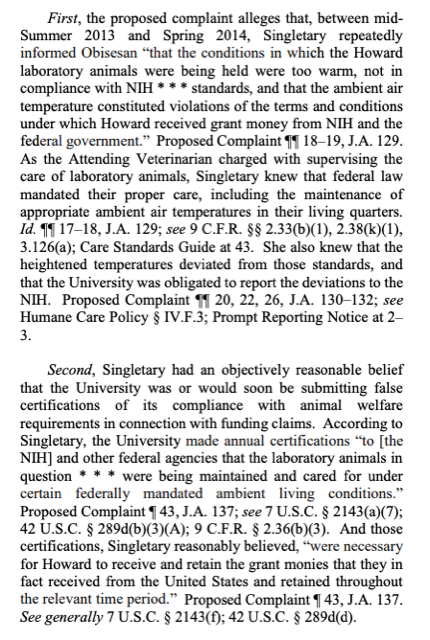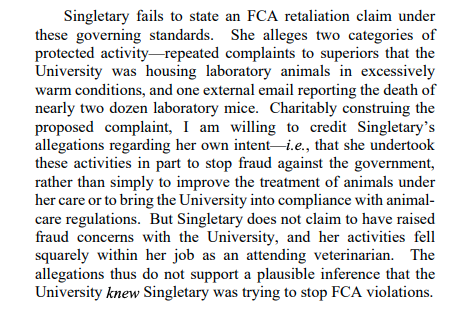D.C. Circuit Review – Reviewed: A Question Answered
A few months back I “wonder[ed] what Judges Randolph and Henderson (the panel majority in Kiyemba) think of today’s decision [in Qassim v. Trump].” We now know the answer, at least for Judge Henderson: She disapproves.
Let’s back up. Qassim is about whether procedural due process applies to detainees held at Guantanamo Bay. The D.C. Circuit arguably resolved this question ten years ago in Kiyemba v. Obama:
Procedural due process is part of the “due process clause,” and the D.C. Circuit stated “the due process clause does not apply to aliens without property or presence in the sovereign territory of the United States.”
In Qassim, however, Judge Millett (joined by Judges Pillard and Edwards) concluded that the Kiyemba panel’s reference to the “due process clause” only includes substantive due process, not procedural due process:
This week, we learned that Judge Henderson does not agree with Judge Millett’s understanding of Kiyemba — and that is putting it mildly. It appears that Judge Henderson sua sponte called for en banc rehearing of Qassim, and when the Court declined, she dissented. In her dissent, joined by Judge Rao, Henderson announced (as I read her opinion) that she will not follow Qassim and argued that no judge should:
The Qassim panel responded*:
So is the disagreement over? Judge Henderson doesn’t think so. She cited footnote 3 of FedEx Home Delivery v. NLRB:
It looks like the majority of the Court agrees with Judge Millett. After all, they didn’t rehear the case en banc. But as a formal matter, at least as I understand the rule, a denial of rehearing should not be understood as a decision on the merits. So perhaps we haven’t heard the last of this disagreement. Or maybe we have. I don’t know. But it is safe to say that this is an issue worth watching.
The D.C. Circuit decided another case this week: Singletary v. Howard University. It also involves Judge Millett (this time joined by Judge Srinivasan) and a dissent (this time by Judge Katsas). The case concerns “the False Claims Act’s anti-retaliation provision.” Here is how Judge Millett opened the Court’s opinion:
The details here are (relatively) complicated. But the gist of it is that the majority concluded Singletary raised enough fact issues to survive dismissal. Here is a sample:
Judge Katsas dissented. Here is a taste of his dissent:
If you have time, the dueling opinions here are worth a read. But brace yourself. This is a pretty fact-heavy case. In all events, that’s the week.
* Judge Edwards was able to participate because he was on the Qassim panel. Judge Randolph, who has taken senior status, could not participate because he was not a member of that panel. So we still don’t know what he thinks.
D.C. Circuit Review – Reviewed is designed to help you keep track of the nation’s “second most important court” in just five minutes a week.



